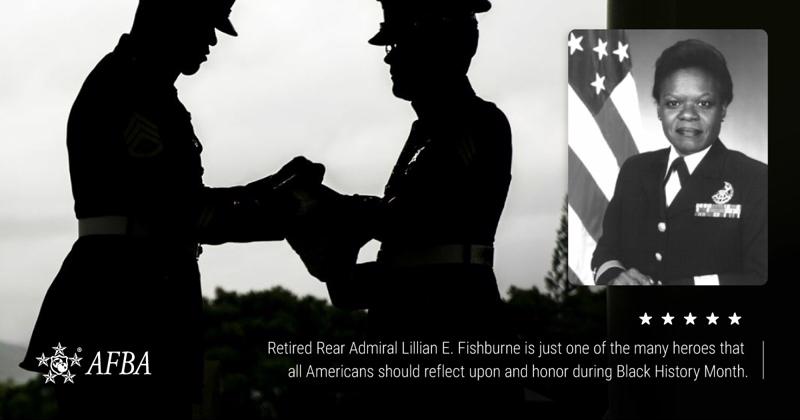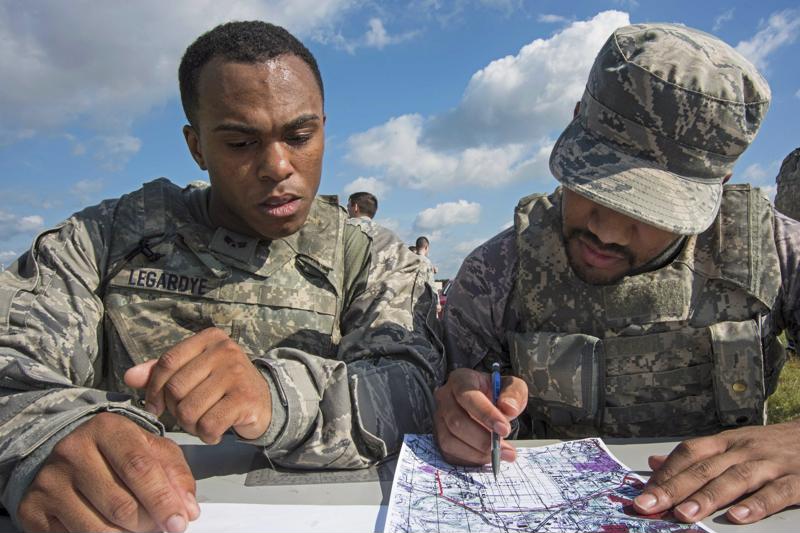Black History Month can trace its origins back 50 years, to when black educators at Kent State University first proposed the idea in February 1969. The following year, the public research college in Northeastern Ohio observed the first Black History Month, which since then has expanded across the United States, as well as to Canada, the United Kingdom, the Netherlands and Ireland.
While African Americans have made countless positive contributions to our country's cultural, economic and political fabric, their service in our nation's armed forces deserves special recognition. From the 5,000 black soldiers who fought during the Revolutionary War to the Tuskegee Airmen who piloted bombers in WWII, African Americans have been serving the United States since it's inception, even at times when the U.S. failed to serve them.
And of the many pioneering black servicemen and women worthy of praise, special attention should be given to Lillian E. Fishburne, who in 1998 became the first African-American woman to hold the rank of Rear Admiral in the United States Navy.
The life and career of Rear Adm. Fishburne
Lillian Elaine Fishburne was born into a naval family in Patuxent River, Maryland, on March 25, 1949–just one year after the integration of minorities and women in the military.
Fishburne was raised in Rockville, Maryland, by an active-duty father who never doubted his daughter's military ambitions. After obtaining a Bachelor's degree in Sociology from Lincoln University in 1971, she spent two years at the Women Officers School at Newport, Rhode Island, becoming an ensign after graduating in February 1973.
According to Black Past, Fishburne's first naval assignment was serving as a personnel and legal officer at the Naval Air Test Facility in Lakehurst, New Jersey. She went on to act as an Officer Programs recruiter in Miami, then as the officer in charge of the Naval Telecommunications Center at the Great Lakes, Illinois Naval Base.

Fishburne then went back to school for another two years, earning her Master of Arts in Management from Webster College in St. Louis, Missouri. She spent the next two years at the Naval Postgraduate School in Monterey, California, graduating with a Master of Science in Telecommunications Systems Management in 1982.
Thanks to appointments to positions such as executive officer at the Naval Communications Command in Yokosuka, Japan, and special projects officer for the Navy's Command, Control, and Communications Directorate, Fishburne was eventually selected for the Industrial College of the Armed Forces.
After becoming Chief of the Command and Control Systems Support Division in Washington, D.C., and commanding the Naval Computer and Telecommunications Area Master Station, Eastern Pacific, in Hawaii, Fishburne made history by attaining the rank of Rear Admiral on Feb. 1, 1998, and was promoted by President Bill Clinton.
A legacy of heroism
Fishburne retired in February 2001, with a long list of decorations that included the Defense Superior Service Medal, Legion of Merit, two Meritorious Service Medals, two Navy Commendation Medals, and the Navy Achievement Medal.
During a 1998 ceremony to honor Fishburne, along with other military members, Secretary of Defense William Cohen delivered a speech in which he quoted novelist and retired Air Force Maj. Albert Murray as saying, "Heroism… is measured in terms of the stress and strain it can endure, and the magnitude and complexity of the obstacles that it overcomes… which bring out the best in [heroes]."
"Considering the stresses and strains endured by African-Americans in the defense of our country, it's little wonder that we have so many heroes among us," Secretary Cohen added, according to Military.com.
Retired Rear Admiral Lillian E. Fishburne is just one of the many heroes that all Americans should reflect upon and honor during Black History Month.


